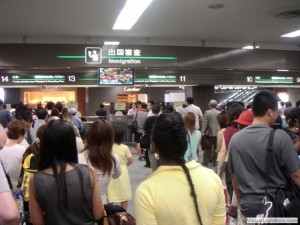Japan opening its doors to foreign workers
 Japan is proposing an unprecedented expansion to its restrictive immigration program as it becomes more desperate for workers to support an economically vital construction boom.
Japan is proposing an unprecedented expansion to its restrictive immigration program as it becomes more desperate for workers to support an economically vital construction boom.
While it has long welcomed temporary visitors such as business travellers and tourists from overseas, accepting a foreigner as an immigrant or permanent resident into Japan is still considered to be a rare and special privilege.
Breaking with tradition, the government has announced its plan for reforming current stringent immigration laws, to a simpler one, in attempt to attract qualified foreign workers to settle permanently in Japan.
The controversial foreign worker program is seen as part of the government’s attempt to find a solution to Japan’s declining population and faltering economy.
According to one study, by 2050, Japan is likely to lose 35 million workers, with 35 per cent of the population in retirement.
This forecast is based upon the ageing society and sustained low birth rates and having to deal with rapid population declines and severe shortages of labour force.
Western European states, such as Germany and France – who have also had to deal with rapid population declines and severe shortages of labour – have set precedents for inviting temporary guest workers into their societies who can then became legal permanent residents.
Aside from its shrinking population, Japan has been struggling with a flat-lining economic environment for more than a decade.
Proponents of the scheme say the revitalisation of Japan’s economy requires, among other reforms, an influx of non-Japanese professionals into the country.
Currently non-Japanese employees represent less than one per cent of the total workforce in Japan while in the US and Europe, foreign workers represent between five and ten per cent of the entire workforce.
The reluctance of many Japanese companies to employ foreign workers partially stems from the current restrictive immigration policies.
Relaxing residency restrictions would require broader reform. For instance, current labour, insurance and education laws do not guarantee the same rights to foreign workers as they do for Japanese citizens.
Actively granting permanent residency status to highly skilled foreign workers would force legislators to reform and restructure these areas of law.
Japan also faces the task of becoming a more attractive place to live for non-Japanese.
Japan’s current foreign trainee program permits unskilled labour from Asia to work for Japanese companies for three years.
The internship plan launched in 1993 invites foreign trainees to work in Japanese companies under the slogan of learning new technologies before returning home.
But it is riven with problems. More than 200 companies were reported in 2012 for abuses such as low pay and long working hours for foreign workers and activists view the trainee system as just a stop-gap measure to counter Japan’s ageing population – a quarter of its 130 million people are above 65.
From a peak of 83 million workers in 1995, the number had fallen by almost five million in 2012.












